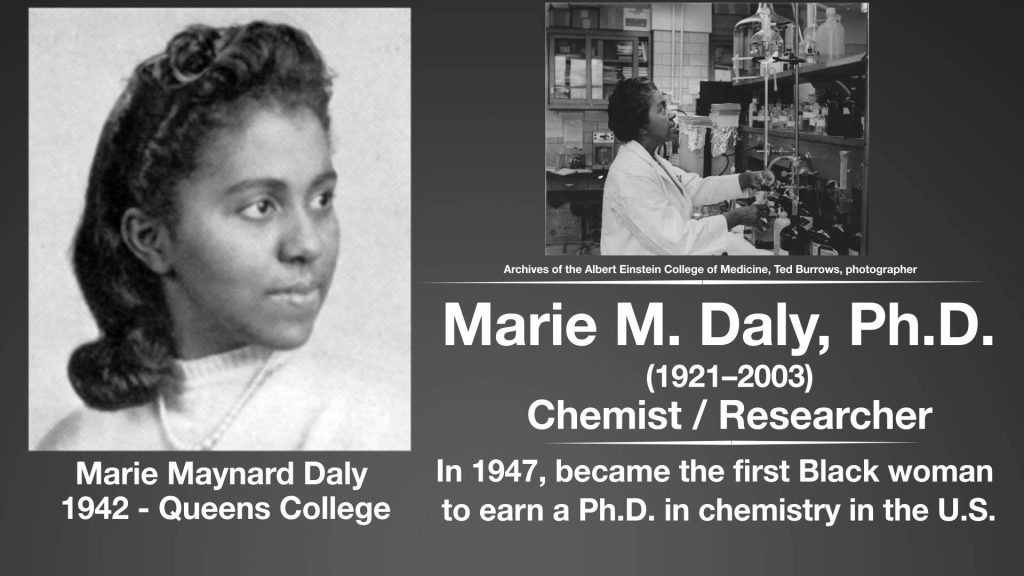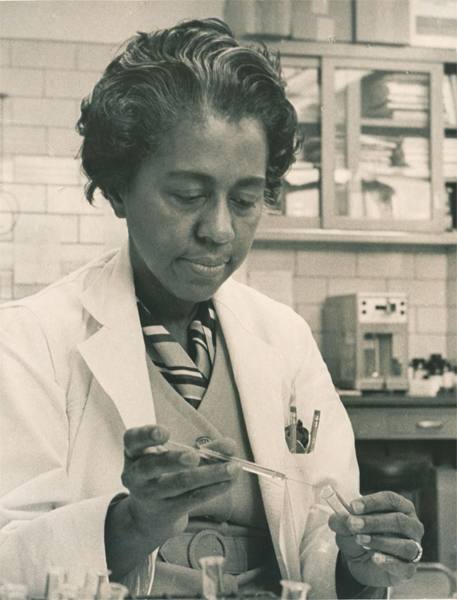-
Diversity
Black History Month: Honoring Dr. Marie M. Daly

Each February, Black History Month is recognized to honor the many contributions of Black Americans and their role in U.S. history. Keeping with this year's theme of "Black Health and Wellness," the Mayo Clinic News Network will recognize a pioneer in the field of medical science each week throughout the month.
This week, the Mayo Clinic News Network honors Dr. Marie Daly.
In 1947, Marie Daly made history when she became the first African American woman to earn a doctorate in chemistry in the U.S.
She was born in New York City and inspired at a young age by her father. He had studied chemistry at Cornell University, but he was forced to leave due to lack of funds. Both of Daly's parents were committed to her education and encouraged her pursuit of science.
Dr. Daly was a biochemist who made notable scientific discoveries and contributions throughout her career. Her work on histones — proteins found in cell nuclei — is now considered fundamental. She was among the first researchers to identify risk factors for cardiovascular disease, particularly those related to high blood pressure and hypertension. And she did pioneering work on the effects of cigarette smoke on the lungs.

Dr. Jennifer Westendorf, chair of Mayo Clinic's Department of Biochemistry and Molecular Biology shares her thoughts and perspectives on Dr. Daly's work and legacy.
The work of many unsung heroes and heroines in science was foundational to other discoveries. Unfortunately, the scientists who uncovered key pieces of evidence that changed scientific fields and medicine aren't often remembered.
Women and Black scientists have historically received less credit than they deserve. In honoring and remembering them, we not only showcase and learn from their achievements, but we also remind people that talent is everywhere.
"When talent meets the right opportunity in a fertile environment, it will grow and produce excellent work. I hope that all young chemists, biochemists and molecular biologists, and especially female Black scientists, will see Dr. Daly as a role model who made exceptionally important discoveries by following her passion for science."
Dr. Daly's body of work is astounding in its breadth, depth and impact on science and medicine. The topics she studied ― basic DNA and histone composition, as well as protein and lipid metabolism ― are still relevant today in the fields of medicine, biochemistry, molecular biology and physiology. Dr. Daly's data have stood the test of time and provided a solid foundation for today's research.
Dr. Daly also is inspiring because of her efforts to make the scientific dream possible and better for minority women who followed her. She established a scholarship in her father's name for Black chemistry and physics majors at her alma mater, Queens College.
She also participated in the first-of-its-kind meeting of 30 minority female scientists to discuss ways of increasing the number of minority women scientists. Their recommendations appear in the 1976 report "The Double Bind: The Price of Being a Minority Woman in Science." The major themes in this report remain relevant today.
Jennifer Westendorf, Ph.D., Mayo Clinic
Learn more about the work of Dr. Daly:
- Biography.
- "Unsung: Marie Maynard Daly."
- Science History Institute.
- Marie M. Daly Memorial Celebration.
- "The Amino Acid Composition and Some Properties of Histones" (1951).
- "Uptake of Glycine-N15 by Components of Cell Nucleii" (1952).
- "Purine and Pyrimidine Contents of Some Desoxypentose Nucleic Acids" (1950).
- "Synthesis of Protein in the Pancreas" (1953).







